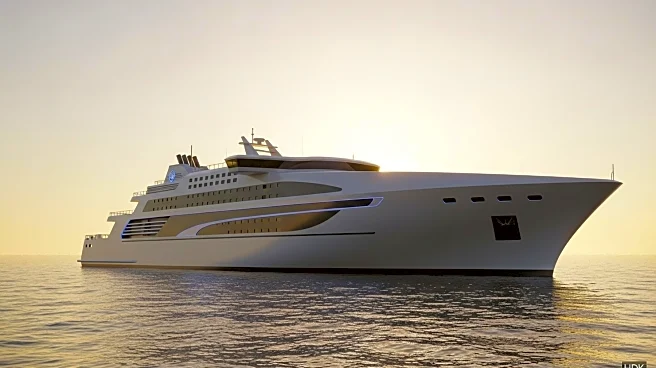What is the story about?
What's Happening?
A.P. Moller - Maersk has initiated a large-scale retrofit program for its time-chartered fleet, involving around 200 vessels and 50 shipowners. The program aims to improve fuel efficiency and cargo capacity, thereby reducing costs and greenhouse gas emissions. Key modifications include replacing propellers and bulbous bows, installing auxiliary engine waste heat recovery systems, and enhancing cargo-carrying capacity. This initiative is part of Maersk's broader goal to cut scope 1 greenhouse gas emissions by 35% by 2030, using 2022 as a baseline.
Why It's Important?
The retrofit program is a strategic move by Maersk to maintain its competitive edge in the shipping industry while addressing environmental concerns. By reducing fuel consumption and emissions, Maersk not only lowers operational costs but also meets increasing regulatory and consumer demands for sustainable practices. This initiative could serve as a model for other shipping companies, potentially leading to industry-wide changes in fleet management and environmental strategies. The program's success could also influence future regulatory frameworks and consumer expectations.
What's Next?
Maersk plans to complete an additional 1,000 retrofit projects by 2027, continuing its collaboration with shipowners. The company is also exploring further innovations, such as dual-fuel methanol capabilities, to enhance sustainability. As the program progresses, Maersk will likely assess the impact on operational efficiency and emissions, potentially refining its strategies to maximize benefits. The shipping industry will be closely monitoring these developments, as they could have significant implications for market dynamics and regulatory standards.















